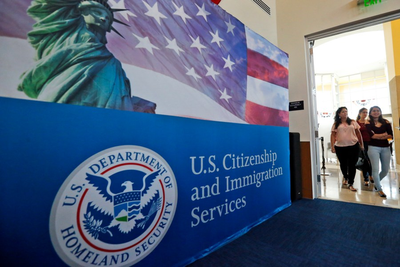
(NewsNation) — If Congress can't reach an agreement on legislation to keep the federal government funded, it will shut down Oct. 1. While services considered essential will continue to operate, others will go dark, including some critical components of the immigration system.
To start with what will still function, Immigration and Customs Enforcement and Customs and Border Patrol are both considered essential. While some duties handled by those agencies may be put on pause, securing the border and handling check-ins with immigrants in the U.S. will still happen.
Employees, however, may have to work without pay until the shutdown ends, though they are guaranteed to get the pay back once things reopen. Still, some towns along the border are concerned about how long some employees can continue without paychecks if the shutdown lasts for a while, as it did in 2018 when things remained closed for 35 days.
U.S. Citizenship and Immigration Services would also continue a significant portion of its work, which is supported by fees rather than appropriations. Naturalization ceremonies, biometric processing and interviews for benefit applications would continue during a shutdown.
One major USCIS service that would be unavailable is the E-Verify service employers use to check immigration status during hiring. Employers would have to use an alternate process to verify immigration status, and those in states where E-Verify is mandated would face delays in hiring.
Similarly, while enforcement operations handled by CBP would continue, the agency would pause processing applications handled at the border, creating delays for those attempting to cross legally at points of entry.
The Department of Labor would also stop processing work-related immigration applications like H-1B visas. Typically, the department will extend deadlines for those whose applications are affected by the shutdown.
Immigration courts will also shut down most operations, save for cases of those currently in detention. That will delay an already backlogged system where people may wait years for their case to be heard.
The Department of State will also be affected, leaving some consulates and embassies only able to handle diplomatic cases and cases considered emergencies.
In addition to the lack of services, all government agencies are likely to furlough workers who operate in nonessential capacities. While those employed by the federal government directly will get retroactive pay, federal contractors are not guaranteed pay while the government shuts down.